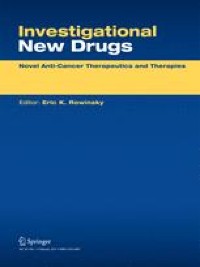Summary
Background Alflutinib is a novel irreversible and highly selective third-generation EGFR inhibitor currently being developed for the treatment of non-small cell lung cancer patients with activating EGFR mutations and EGFR T790M drug-resistant mutation. Alflutinib is mainly metabolized via CYP3A4 to form its active metabolite AST5902. Both alflutinib and AST5902 contribute to the in vivo pharmacological activity. The aim of this study was to investigate the effects of rifampicin (a strong CYP3A4 inducer) on the pharmacokinetics of alflutinib and AST5902 in healthy volunteers, thus providing important information for drug-drug interaction evaluation and guiding clinical usage. Methods This study was designed as a single-center, open-label, and single-sequence trial over two periods. The volunteers received a single dose of 80 mg alflutinib on Day 1/22 and continuous doses of 0.6 g rifampicin on Day 15–30. Blood sampling was conducted o n Day 1–10 and Day 22–31. The pharmacokinetics of alflutinib, AST5902, and the total active ingredients (alflutinib and AST5902) with or without rifampicin co-administration were respectively analyzed. Results Co-administration with rifampicin led to 86% and 60% decreases in alflutinib AUC0-∞ and Cmax, respectively, as well as 17% decrease in AST5902 AUC0-∞ and 1.09-fold increase in AST5902 Cmax. The total active ingredients (alflutinib and AST5902) exhibited 62% and 39% decreases in AUC0-∞ and Cmax, respectively. Conclusions As a strong CYP3A4 inducer, rifampicin exerted significant effects on the pharmacokinetics of alflutinib and the total active ingredients (alflutinib and AST5902). The results suggested that concomitant strong CYP3A4 inducers should be avoided during alflutinib treatment. This trial was registered at http://www.chinadrugtrials.org.cn. The registration No. is CTR20191562, and the date of registration is 2019-09-12.



No comments:
Post a Comment